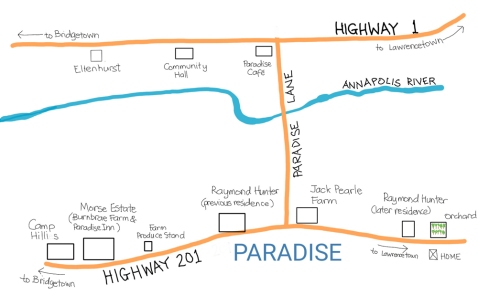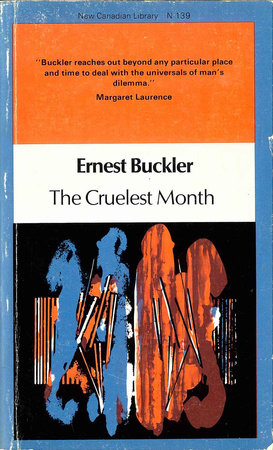On Friday, battling icy roads, we held a meeting of the Ernest Buckler Literary Event Society (EBLES) at Burnbrae Farm in Paradise. Simone and Erik provided us with hot coffee and biscuits.
The meeting was to learn about their plans for the Morse Estate and Camp Hillis and to see the potential for future literary events. We were operating in a two-fold context. Ernest Buckler had written The Cruelest Month. 
The second context was that the Morse family published several books in the 1920s describing the local geography of this part of the Annapolis Valley. We also knew something about the history of Camp Hillis, a government-run facility for children with various challenges. When the property came up for sale next door, Simone and Erik decided to purchase. They are starting renovations this Summer.
After a couple of hours of discussion and a tour, we settled on a plan of action. First, we need to research more fully Buckler’s book as well as the Morse books. Sandra Barry who has been a long time member of the Elizabeth Bishop Society, described the ‘power of reading Bishop’s work, in situ, in the houses and rooms in Great Village’. We can envisage something similar at the Morse Estate. The new owners have already been in contact with the Morse family and have a number of historic photographs and letters.
The potential of Camp Hillis remains uncharted. Many children spent time at the camp. They would have stories. They would be familiar with the grounds, the house, dormitories etc. It could offer a similar outdoor experience today.
From the EBLES perspective, these buildings and their stories offer a unique writers retreat. Different, but not dissimilar, to what the Elizabeth Bishop Society of Nova Scotia has achieved at Great Village.
To my mind, these places exemplify ‘experiential rural tourism’, where the visitor can be immersed in both, the local landscape and also the stories related to that landscape and its history.
Acknowledgements
To the EBLES Board: Jane Borecky, Anne Crossman supplemented by Sandra Barry, Bill Crossman and Heather Stewart. Your insights and ideas are always a joy. To Simone and Erik, we appreciate your enthusiasm and investment in this part of rural Nova Scotia. Edward for his graphics contribution.
References
Burnbrae Farm and Paradise Inn. see website www.burnbraeparadise.ca
Ernest Buckler. 1963. The Cruelest Month. McClelland and Stewart.
For books by William Morse see my earlier blog (November 28, 2018).
PS. This weekend, Heather and I head to the Flying Apron. It is an annual pilgrimage in celebration of my birthday (see last year blog). Another fine example of experiential rural tourism.